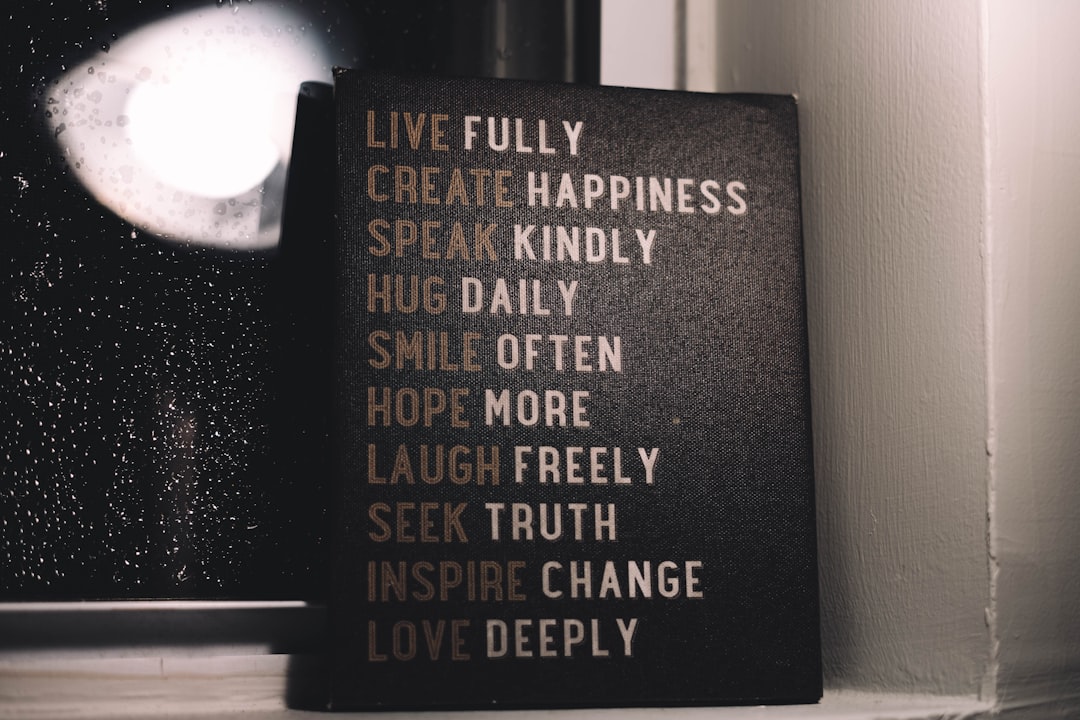Why Mental Bandwidth Is Your Most Underrated Asset
Mental bandwidth is like RAM for your brain. It’s the cognitive capacity you have at any given moment to think, process, and make decisions. When it’s maxed out, everything slows down. You feel foggy, overwhelmed, and reactive. And in business—especially for entrepreneurs—mental overload isn’t just inconvenient. It’s expensive.
It’s not the number of hours you work—it’s how clearly you think during those hours that determines your impact. The goal? Free up mental bandwidth so you can focus on high-leverage tasks, make better decisions, and stay out of the burnout spiral.
Let’s dig into how to offload, organize, and externalize so your brain has the space to do what it does best: solve problems and create.
What’s Draining Your Mental Bandwidth
If you feel constantly tired but not sure why, mental clutter might be the culprit. It’s not always about doing too much—it’s about thinking about too much.
Your mind juggles unfinished tasks, half-formed ideas, reminders, decisions, emails, that one message you forgot to respond to… all at once. This “open loop” syndrome creates a background buzz that’s hard to turn off.
Even small things—like not knowing what’s for dinner—drain the same bandwidth you need for strategic planning. Multiply that by dozens of open tabs in your brain, and suddenly your ability to focus is toast.
Many people underestimate the cumulative weight of these mental micro-loads. Every decision you postpone, every task you haven’t captured, and every unresolved thought creates low-level stress that compounds throughout the day. It’s not dramatic enough to feel urgent, but it’s always there—gnawing at your attention. Left unmanaged, this mental clutter doesn’t just slow you down—it shapes your baseline state of overwhelm. Understanding these subtle drains is the first step in taking back your mental clarity and focus.
The Power of Brain Dumps
A brain dump is exactly what it sounds like—getting everything out of your head and onto paper (or a screen). No filter, no organization, no judgment. The goal isn’t neatness or structure—it’s mental relief. It’s the act of taking what’s swirling in your brain and giving it a home outside of it.
It’s not about creating a polished to-do list. It’s about clearing the mental cache. When your brain is overloaded with unspoken reminders and scattered ideas, it becomes difficult to focus or move forward with confidence.
Sit down with a notebook, a whiteboard, or a blank doc and write down everything that’s floating around in your mind. Business ideas, emails you need to send, conversations you’ve been replaying, random errands, personal stressors—dump it all.
Once it’s out, your brain stops clinging to it. You’ll feel lighter, less overwhelmed, and often more inspired. It creates a clear mental path to start prioritizing and taking action.
High performers often brain dump daily or weekly—especially before big projects, decisions, or time off. It’s a fast, zero-cost way to feel instantly lighter, sharper, and more in control of your time and thoughts.
Journaling to Organize Internal Noise

Journaling is like having a one-on-one meeting with your thoughts. It gives you space to check in with your mental and emotional state, make sense of what’s going on beneath the surface, and start noticing patterns in your energy and decision-making. When things feel scattered or overwhelming, journaling is often the fastest way to slow down and reconnect.
This practice provides a quiet place to unpack your mind’s mental traffic. It helps you untangle feelings, clarify ideas, and track patterns over time. By capturing your thoughts on paper or screen, you reduce the mental backlog that silently eats away at your focus and clarity.
You don’t need to be a writer. You just need to be honest. Morning pages—three pages of stream-of-consciousness writing—are a powerful way to unload mental clutter before the day begins. A daily reflection journal helps you review what’s working, what isn’t, and where to focus next. Planning journals bridge the gap between your goals and your daily execution, making your intentions visible and actionable.
The habit matters more than the format. Whether you’re using a physical notebook, a guided template, or a digital journaling app like Day One, Journey, or Reflect, what matters is the act of consistently externalizing your thoughts. Give yourself space to think on paper—it creates room to think better off paper, and opens up clarity that otherwise gets buried beneath the noise.
Externalizing Tasks for Instant Relief
The human brain wasn’t designed to store endless reminders, checklists, and follow-ups. That’s what systems are for.
Externalizing tasks means getting them out of your head and into a trusted system. That could be a to-do app, a digital workspace, or even a sticky note wall.
The key is consistency. If you trust the system, your brain can finally relax.
Tools like Notion, Google Keep, and Trello make it easy to capture and sort tasks. You can even categorize them by context (e.g., “Calls to make” or “Deep Work”) to make execution easier.
The act of writing it down tells your brain: “You’re off the hook for remembering this.” That one move can buy back hours of mental energy.
How AI Tools Help Clear Mental Clutter

AI isn’t just for content creation or automating workflows—it’s a powerful tool for cognitive relief. As mental bandwidth becomes more precious in a fast-moving, always-on world, having a digital assistant that can reduce the cognitive noise is no longer a luxury—it’s essential.
Use ChatGPT to brainstorm, plan, or organize thoughts. Feeling scattered? Ask it to summarize your notes or sort them into themes. It’s like having a thinking partner who never gets tired.
Apps like Notion AI and Motion can take raw inputs (your brain dumps, reminders, and tasks) and turn them into structured, prioritized action plans. Whether you’re planning a launch or just trying to get through Monday, these tools help bring order to chaos without requiring extra mental effort.
AI can even help you discover insights you didn’t realize were in your notes. For example, ChatGPT can find recurring themes in journal entries or planning docs, while Motion can automatically schedule time for deep work based on your priorities.
The less mental energy you spend on sorting and planning, the more you can use for critical thinking, creative breakthroughs, and strategic decisions. By letting AI handle the administrative load, you’re free to focus on what really matters.
Mental Clarity = Better Decisions

Big decisions don’t require more time. They require more clarity.
And clarity comes from space. When your mental bandwidth is clogged with dozens of low-stakes worries, you don’t have the capacity for high-stakes thinking.
By externalizing your thoughts and freeing up space, you create margin. And margin is where your best ideas, strategies, and insights come from.
Freeing your mind is not just a productivity tactic—it’s a leadership move. When your brain has fewer distractions to manage, you have the mental real estate to evaluate options thoroughly, assess risks accurately, and make bold, confident decisions. High performers know that the greatest breakthroughs don’t come when you’re buried in busywork—they come when your mind is clear enough to think deeply. Creating this clarity gives you the freedom to lead with vision instead of reacting in survival mode.
You Don’t Need More Hours, You Need More Headspace

Productivity isn’t just about doing more—it’s about thinking better. And that starts with protecting your mental bandwidth.
When we hit a wall in our work, our instinct is often to push harder, work longer, or add more to the to-do list. But the truth is, your brain needs space—not pressure—to function at its best. Think of mental bandwidth as a garden. If it’s overgrown with weeds (open loops, distractions, unprocessed thoughts), it can’t grow anything worthwhile. But when you clear it out, tend to it, and create room, you give yourself the opportunity to cultivate your most meaningful, strategic work.
Dump your thoughts. Journal for clarity. Build systems to hold what your brain no longer needs to. Let AI lend a hand. Give your mind the breathing room it deserves—and you’ll be shocked at the clarity and power that flows in.
Create space—and then fill it with your best work.
FAQ: Mental Bandwidth
What is mental bandwidth? It refers to your brain’s capacity to focus, process, and make decisions. When it’s overloaded, productivity and clarity suffer.
How often should I do a brain dump? Ideally once a week or anytime you feel overwhelmed. Some people do it daily for clarity.
What’s the best journaling method for reducing overwhelm? Morning pages and short daily reflections are great. Keep it simple and consistent.
Can AI actually help me think more clearly? Yes. AI tools like ChatGPT and Notion AI help you offload, organize, and structure your thoughts faster than manual methods.
What’s the difference between a brain dump and a to-do list? A brain dump is unfiltered and includes everything on your mind. A to-do list is curated and action-oriented.




